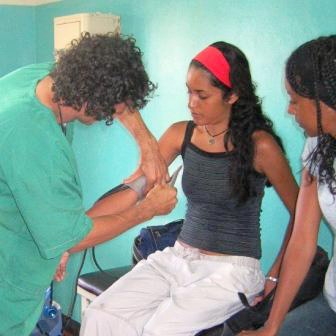Undocumented immigrants from Mexico are much less likely to have a physician visit in the previous year and a usual source of care compared to documented immigrants from Mexico, according to a study of UCLA School of Public Health.

Compared to documented immigrants from Mexico, undocumented immigrants are more likely to be young, single, poor, uninsured, with fewer years of schooling, lower English proficiency and less time in the US. With respect to healthcare access and utilization, documented immigrants are more likely to report at least one doctor visit in the previous year compared to undocumented immigrants from Mexico. The average number of physician visits for documented immigrants is 3.24, which is greater than that of 2.26 for undocumented immigrants from Mexico.
Documented and undocumented immigrants from Mexico face the same probability of using the Emergency Room and experiencing delays in accessing drugs and other healthcare services. Sex, marital status, education, poverty status and health insurance coverage are the most relevant characteristics that explain these differences. The study also found that time in the US and English proficiency are important predictors of healthcare access and utilization.
Evidence suggests that overall economic contributions from immigration exceed public expenditures on immigrants for services. Although the taxes and contributions to public programs is positive at the federal level, it is more often negative at the local level.
The study concludes that excluding undocumented immigrants from the Patient Protection and Affordable Care Act is likely to make healthcare access and utilization more inequitable between documented and undocumented immigrants. Even if increased funding for community health centers could slightly ameliorate health care disparities among immigrants, the ultimate solution would be to provide some form of legal status to currently undocumented immigrants.
Source: Center for Health Policy Research, UCLA, “Variations in Healthcare Access and Utilization Among Mexican Immigrants: The Role of Documentation Status”, October 2010.